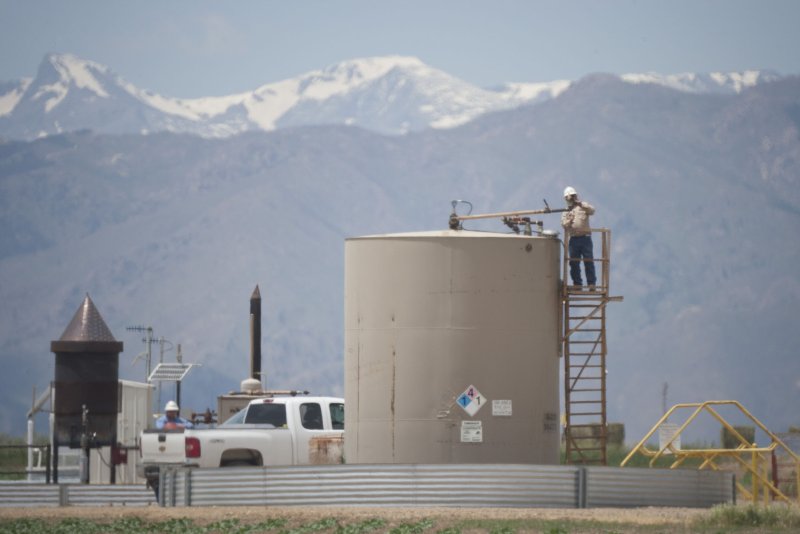In certain scenarios, the rate of emissions from oil and gas operations increases faster than the rate of production gains, a new study found. File photo by Gary C. Caskey/UPI |
License Photo
Sept. 20 (UPI) -- Gross emissions from the production of oil and natural gas are increasing faster than the actual rate of production, consultant group Wood Mackenzie found.
The group drew on its records for oil and natural gas production to carry out what it said was the first comprehensive study ever to look at upstream sector emissions. It said that gross emissions from the assets it examined are increasing at a rate of about 17 percent through 2025, compared with production gains from the same assets of 15 percent over the same period.
"This is being driven largely by the higher intensity of primary growth themes - heavy oil, oil sands and liquefied natural gas," Amy Bowe, the head of upstream research at Wood Mackenzie, said in an emailed statement. "Conventional onshore assets are still the largest single source of emissions and production to 2025, but they represent a declining share in each case."
By country, the results are mixed, the report found. Malaysia, Nigeria and Venezuela rank as the country's with the highest level of emissions because of their concentration of heavy oil operations, though they aren't among the largest in terms of production.
By resource, the report found LNG emissions are on pace to increase quicker than all of the others included in the study. Emissions from liquefaction, the process for cooling gas to the liquid form, are on pace to increase by 43 percent over the study period, compared with 22 percent gains in production.
Liquefied natural gas is gaining ground because it offers a cleaner fuel resource and more maneuverability in terms of delivery. Conventional gas is shipped through transnational pipelines, which are exposed to geopolitical risk.
Gavin Law, the head of natural gas and power consulting for Wood Mackenzie, said the study matters for investors looking at plans to advance a global low-carbon economy.
"The carbon emissions targets set by the Paris Agreement, together with potential policy changes, are starting to influence investors' capital decisions and shape companies' long-term corporate strategies," he said.
Wood Mackenzie studied emissions from fields owned by 25 different companies.















